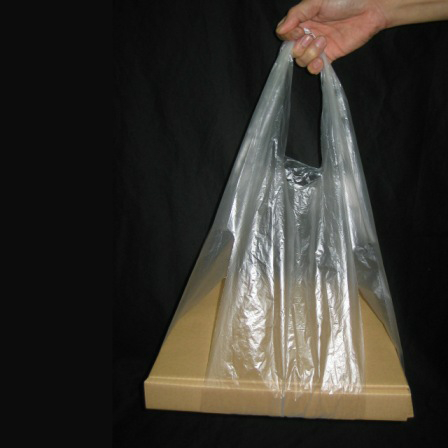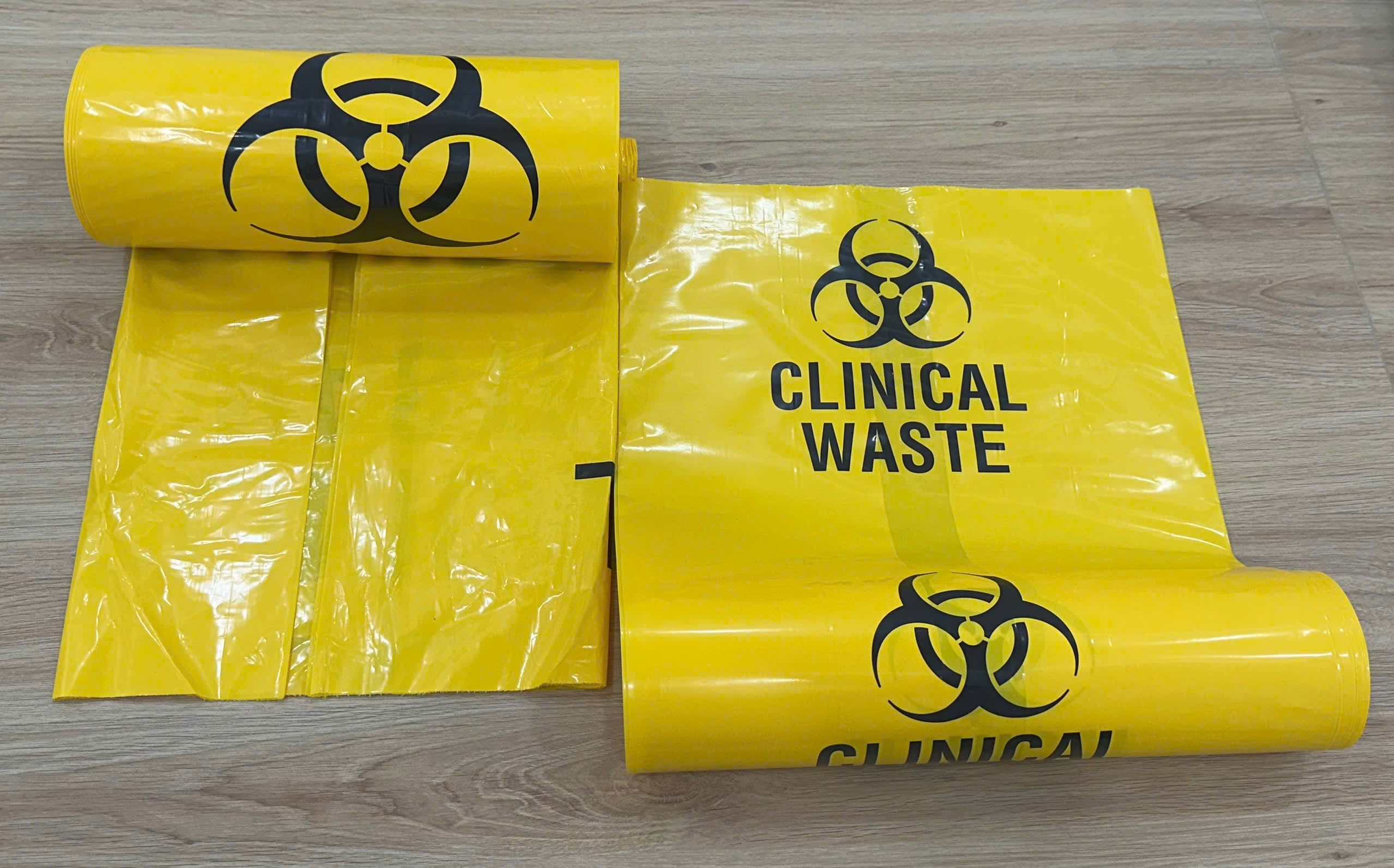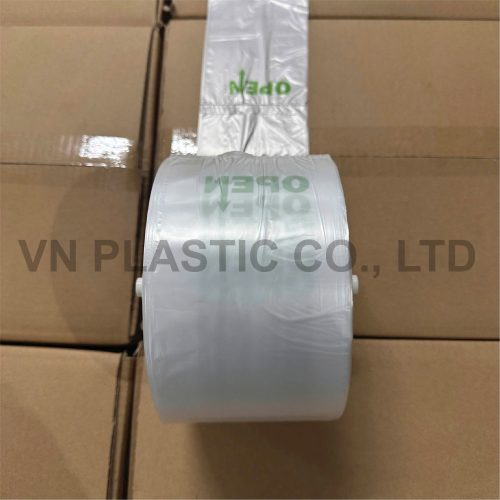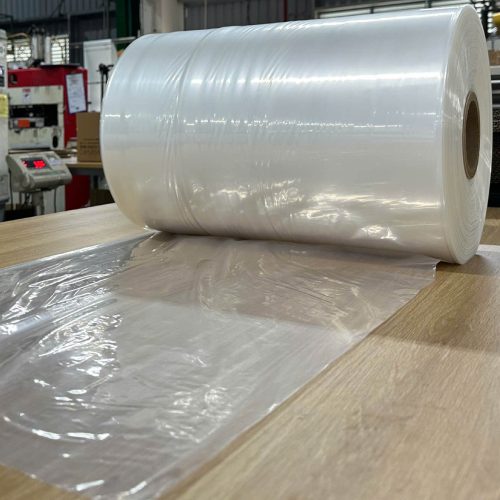In our modern world, bag plastic has become an integral part of our lives, often viewed as a convenient solution for carrying goods. However, the implications of its widespread use extend far beyond mere convenience, raising numerous environmental concerns that we must address.
Who Uses Bag Plastic?

The usage of bag plastic spans multiple demographics and industries, making it a ubiquitous item in our daily routines. Understanding who uses these bags can provide insights into their impact and highlight the necessity of exploring alternatives.
Retailers
Many retailers rely heavily on bag plastic to facilitate transactions. Grocery stores, clothing boutiques, and fast-food chains commonly offer plastic bags to customers as a quick means to carry purchases home.
- Convenience and Cost-Effectiveness: For retailers, plastic bags are affordable and lightweight options that save on shipping costs, whereas alternative materials could be significantly more expensive.
- Consumer Demand: Customers often expect plastic bags as part of their shopping experience. Their lightweight nature allows consumers to easily transport items without much hassle.
Households
Households make extensive use of bag plastic, often without considering the consequences. They’re used for a variety of purposes beyond shopping, such as:
- Waste Disposal: Many families utilize plastic bags for trash and pet waste disposal, believing they are a practical choice for quick clean-up tasks.
- Storage Solutions: Individuals frequently repurpose plastic bags for organizing household items or packing items for travel, taking advantage of the flexibility and durability of these bags.
Restaurants and Food Services
The food industry embraces bag plastic for takeaway services. Fast-food establishments, coffee shops, and catering services depend on them to ensure that food remains secure during transit.
- Hygiene and Safety: The use of plastic in food packaging minimizes exposure to contaminants, providing assurance to consumers about the safety of their meals.
- Preservation of Freshness: Many food items packaged in plastic bags have a longer shelf life, contributing to reduced food waste in households.
How to Properly Dispose of Bag Plastic

Improper disposal of bag plastic is one of the main contributors to environmental degradation. Knowing how to dispose of these bags correctly is crucial for mitigating their negative impacts.
Recycling Programs
Many communities have implemented recycling programs specifically designed to handle plastic bags. It’s essential to familiarize yourself with local regulations regarding recycling.
- Drop-off Locations: Some grocery stores and retail outlets offer drop-off bins for plastic bags. By utilizing these facilities, you ensure that the bags are recycled instead of ending up in landfills.
- Contamination Issues: It’s important to keep plastic bags clean and dry when recycling them. Contaminated bags can ruin entire batches of recyclable material, leading to increased waste.
Reuse Options
Before disposing of bag plastic, consider reusing them whenever possible. This not only extends the lifecycle of the bags but also reduces the demand for new ones.
- Creative Uses: From dog waste collection to organizing various household items, there are myriad ways to repurpose plastic bags. Creativity can turn waste into useful tools around the house.
- Eco-Friendly Alternatives: Consider investing in reusable bags made from sustainable materials. These alternatives are not only environmentally friendly but also durable enough to withstand multiple uses.
Composting
While traditional plastic bags are not compostable, some biodegradable options are available. Learning how to differentiate between types of bags can help you make better choices.
- Biodegradable Bags: These bags are designed to break down in a composting environment. They can serve as an appropriate substitute for those looking to minimize their plastic footprint.
- Home Composting: If you choose to use compostable bags, ensure you’re following proper composting practices. This includes maintaining the right balance of greens and browns, moisture levels, and turning your compost regularly.
Pros and Cons of Bag Plastic
Understanding the benefits and drawbacks of bag plastic is essential for making informed choices about their use in everyday life.
Advantages
Despite the controversies surrounding plastic, there are undeniable advantages to using these bags.
- Durability: Bag plastic can withstand various conditions, making them reliable for transporting goods safely. Unlike paper bags, they won’t tear easily under weight or wet conditions.
- Lightweight Nature: Their lightweight design contributes to easier transport for both consumers and retailers, allowing for a more efficient shopping experience.
- Cost-Effective: For businesses, plastic bags tend to cost less than alternatives like cloth or paper, which can lead to savings over time. This affordability makes them a popular choice among retailers.
Disadvantages
On the flip side, the environmental implications of bag plastic cannot be ignored.
- Environmental Pollution: Plastic bags contribute significantly to pollution, especially in oceans where marine life can ingest or become entangled in them. This has devastating effects on biodiversity.
- Non-Biodegradability: Traditional plastic bags take hundreds of years to decompose, leading to mounting waste problems globally.
- Resource Intensive: The production of plastic bags involves significant amounts of fossil fuels, which contributes to greenhouse gas emissions and climate change.
Alternatives to Bag Plastic
As awareness of the environmental effects of bag plastic increases, many alternatives have emerged. Here are some sustainable options worth considering.
Reusable Bags
The most common alternative to plastic bags is reusable bags, available in various materials, including cloth, jute, and even recycled plastics.
- Environmental Benefits: Using a reusable bag significantly reduces waste, particularly if each bag replaces multiple single-use plastic bags.
- Durability: Many reusable bags are designed to last for several years, making them a cost-effective investment in the long run.
Biodegradable Bags
These bags, often made from plant materials, decompose faster than traditional plastic and are an eco-friendly option.
- Decomposition Process: Depending on the conditions, biodegradable bags can break down in months rather than centuries, reducing their environmental footprint.
- Versatile Uses: They can often be used similarly to traditional plastic bags, making the transition easier for consumers accustomed to plastic.
Paper Bags
Paper bags are another widely accepted alternative, especially in retail environments.
- Renewable Resource: Made from trees, paper is a renewable resource, and recycling paper is generally more straightforward, leading to less waste overall.
- Biodegradable: Unlike plastic, paper bags are biodegradable and will break down naturally over time.
Step-by-Step to Eliminate Bag Plastic from Your Life
Transitioning away from bag plastic requires commitment and intentionality. Here’s a step-by-step guide to help you navigate this process.
Step One – Assess Your Current Usage
Begin by evaluating how many plastic bags you typically use weekly.
- Keep Track: Maintain a log of when and why you use plastic bags to identify patterns. Awareness is key to cutting back.
- Set Goals: Establish clear targets for reducing your plastic bag consumption, such as aiming for zero plastic bags in a month.
Step Two – Invest in Alternatives
Once you’ve assessed your current use, it’s time to explore sustainable alternatives.
- Shop Wisely: Purchase high-quality reusable bags that align with your lifestyle needs. Choose bags that can fold flat for easy storage.
- Opt for Multi-Purpose Options: Select bags that can serve multiple functions, such as insulated bags for groceries or beach trips.
Step Three – Create a System
Developing a system can help integrate the use of alternatives seamlessly into your routine.
- Designate Storage Areas: Store reusable bags in visible locations, such as near your front door or in your car, so you see them before heading out.
- Educate Others: Share your journey with friends and family to encourage them to adopt similar practices, creating a community focused on sustainability.
Tips to Reduce Bag Plastic Use
Here are some helpful tips to successfully minimize your reliance on bag plastic in daily life.
Be Prepared
Always be ready when going out to avoid spontaneous plastic bag usage.
- Create a Checklist: Before leaving the house, check off essential items, including your reusable bags. This preparation can prevent unnecessary purchases of plastic bags.
- Carry Extra Bags: Keep additional reusable bags in your car or purse, ensuring you never find yourself without an option.
Educate Yourself and Others
Knowledge is power; understanding the consequences of plastic bag usage can motivate change.
- Stay Informed: Read articles and watch documentaries highlighting the issues surrounding plastic pollution. This information will reinforce your commitment to alternative solutions.
- Engage in Dialogues: Spark conversations with others about reducing plastic usage. Sharing personal experiences can inspire collective action.
Reward Yourself
Celebrate your progress toward reducing plastic bag usage.
- Track Success: Monitor your achievements and reward milestones, whether that’s treating yourself to a small purchase or enjoying a guilt-free outing.
- Encourage Group Challenges: Engage your circle in challenges to reduce plastic use, making it a fun and rewarding community effort.
FAQs
What are the main problems associated with bag plastic?
Bag plastic contributes to environmental pollution, harms wildlife, and consumes valuable resources during production.
Are there truly effective biodegradable alternatives to plastic bags?
Yes, there are biodegradable bags made from plant-based materials that can decompose in appropriate conditions, making them more environmentally friendly.
Can I recycle my plastic bags at home?
Generally, recycling plastic bags at home is challenging due to contamination. It’s best to take them to designated drop-off locations for proper recycling.
Why are reusable bags considered more sustainable?
Reusable bags are made to last longer and can replace hundreds of single-use plastic bags, significantly reducing waste and resource consumption.
Is it feasible to eliminate bag plastic entirely from my life?
While eliminating all plastic might be challenging, adopting sustainable practices and alternatives can substantially reduce your reliance on bag plastic.
Conclusion
The journey to understand and mitigate the impact of bag plastic begins with awareness and conscious actions. Each individual’s efforts can collectively lead to a greener future, promoting healthier ecosystems and responsible consumption. Transitioning to alternatives, educating ourselves and others, and remaining committed to sustainability are crucial steps in reducing the reliance on plastic bags.
Factory: No 5, Lot CN8.1, Nam Cau Kien Industrial Park, Hoang Dong Commune, Thuy Nguyen District, Hai Phong City, Viet Nam.
Tel/whatsapp:(+84)903 284 939
Ws: http://vnplast.com
Email: [email protected] | [email protected]
Factory: No 5, Lot CN8.1, Nam Cau Kien Industrial Park, Hoang Dong Commune, Thuy Nguyen District, Hai Phong City, Viet Nam.
Tel/whatsapp:(+84)903 284 939
Ws: http://vnplast.com
Email: [email protected] | [email protected]




